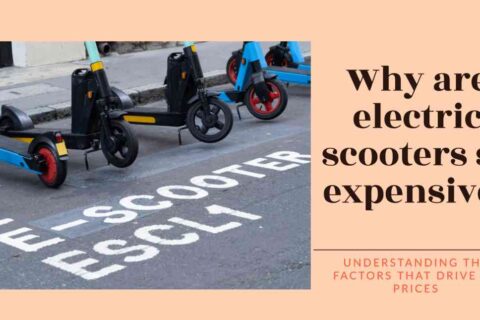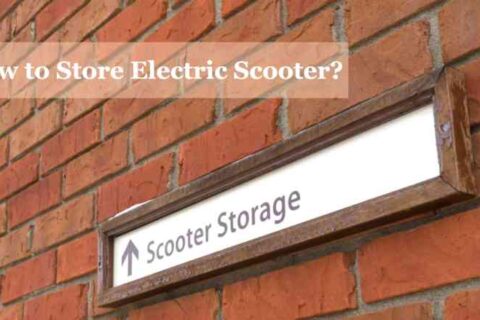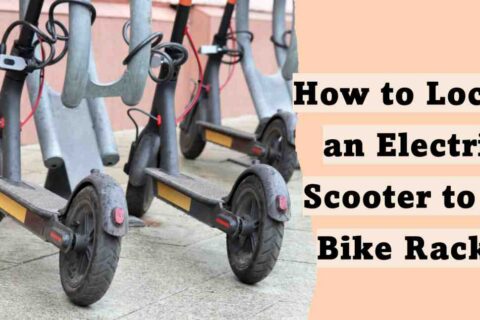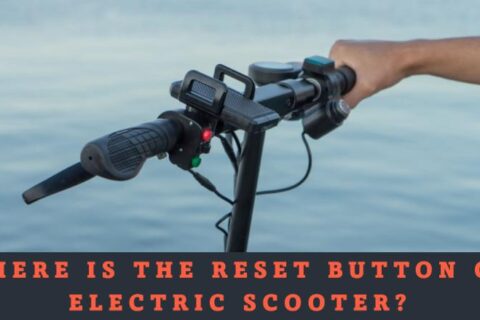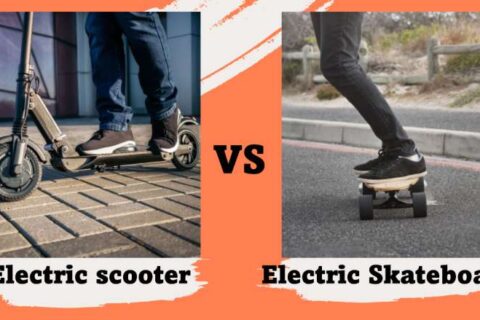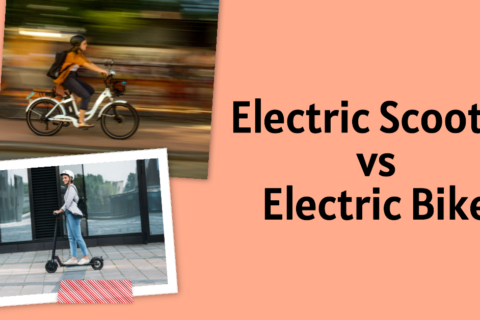The laws governing the usage of electric scooters in the state of Virginia are known as the Virginia electric scooter laws. E-scooters, electric kick scooters, and electric personal assistive mobility devices (EPAMDs) are other names for them.
Along with other safety and legal issues, electric scooters can cause traffic accidents, injuries, property damage, and public disturbance.
Therefore, before using an electric scooter on Virginia’s streets, it’s crucial to grasp the regulations governing them.
In this article, we will provide a comprehensive overview of the electric scooter laws in Virginia, covering topics such as:
| Key Takeaways | |
|---|---|
| Electric scooters are legal in Virginia | Electric scooters are considered motor vehicles under the Virginia Code and are subject to specific regulations. Localities have the authority to set additional rules. |
| Age restrictions for riders | Riders must be at least 14 years old to legally operate an electric scooter in Virginia. Localities may have different age requirements. |
| Driver’s license requirements | A driver’s license or learner’s permit is not required to operate an electric scooter in Virginia, but riders must carry a government-issued photo ID card. |
| Helmet laws | Riders of Class 3 electric bicycles, with a top speed of 28 mph, must wear helmets in Virginia. Helmet laws for electric scooters vary by locality. |
| Where to ride | Electric scooters can be ridden on public roadways with speed limits of 25 mph or less, sidewalks (where not prohibited), and designated bike lanes and trails. |
| Maximum speed limit | The statewide maximum speed limit for electric scooters in Virginia is 20 mph on flat, paved surfaces. Some localities may have lower speed limits for electric scooters. |
| Parking guidelines | Electric scooters can be parked on public highways where parking is allowed, and on sidewalks unless prohibited. Riders should securely lock their scooters when parking. |
| Penalties for violations | Violations of electric scooter laws in Virginia may result in fines, points on a driver’s license, suspension or revocation of a license, community service, or even jail time. |
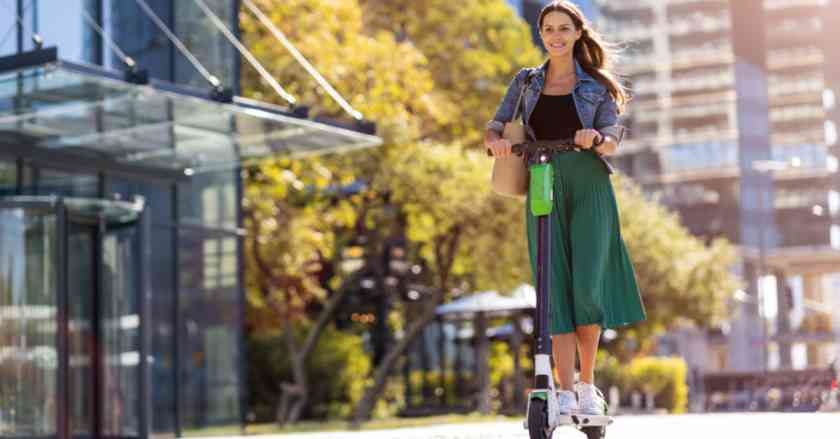
Table of Contents
ToggleUnderstanding Virginia Electric Scooter Laws
Legal guidelines for electric scooters
Every state in the USA has its own e-scooter guideline. In Virginia, Electric scooters are considered motor vehicles under the Virginia Code. This means that they are subject to the same rules and regulations that apply to other motor vehicles, such as cars, motorcycles, mopeds, and bicycles.
However, there are also some specific provisions that apply only to electric scooters.
According to the Virginia Code, an electric scooter is defined as:
A device that
(i) has two or three wheels;
(ii) has a footrest or seat for the operator;
(iii) has handlebars for steering;
(iv) is solely powered by an electric motor or human power; and
(v) has a maximum speed of no more than 20 miles per hour on a paved level surface when powered solely by the electric motor.
This definition excludes devices that have an internal combustion engine, a manual clutch, or a gearbox. It also excludes devices that are designed for off-road use or have a wheel diameter of less than 10 inches.
Virginia electric scooter legislation
In 2020, the Virginia General Assembly passed House Bill 972, which established a framework for regulating electric scooters in the state. The bill took effect on January 1, 2021, and it made several changes to the existing laws regarding electric scooters.
Some of the key changes in the updated electric scooter regulations include:
| Key Changes in Virginia Electric Scooter Laws |
|---|
| Granting localities the authority to regulate electric scooter operation within their jurisdictions. This includes the ability to impose speed limits, restrict usage areas, require permits or licenses, or even implement full bans. |
| Requiring companies offering electric scooter rental services to obtain approval from localities before deploying their devices on public streets or sidewalks. |
| Establishing a statewide maximum speed limit of 20 miles per hour for electric scooters. |
| Mandating that riders must be at least 14 years old to legally operate an electric scooter. |
| Imposing a helmet requirement for riders and passengers of Class 3 electric bicycles, which have a maximum speed of 28 miles per hour. |
| Allowing the use of hand signals instead of turn signals when operating an electric scooter. |
| Permitting riders to use sidewalks unless local ordinances or signage specifically prohibit it. |
| Allowing electric scooter riders to utilize designated bicycle lanes and paths unless local regulations restrict their use. |
| Prohibiting electric scooter riders from using interstate highways or limited access highways. |
| Restricting electric scooter riders from carrying more than one passenger. |
| Prohibiting electric scooter riders from attaching their scooters to another vehicle while in motion. |
The bill also clarified that electric scooters are not subject to registration, titling, insurance, inspection, or taxation requirements. However, riders are still responsible for complying with all traffic laws and regulations when operating an electric scooter on public roads or sidewalks.
Are Electric Scooters Legal in Virginia?
The short answer is yes, electric scooters are legal in Virginia.
But the legality of riding an electric scooter may vary depending on where you are in the state. This is because localities have the authority to regulate the operation of electric scooters within their boundaries.
Some examples of localities that have enacted ordinances or regulations regarding electric scooters include:
Arlington County:
While electric scooters are permitted on sidewalks, trails, and bike lanes, they are not permitted on streets with speed limits greater than 25 mph. Riders are required to follow traffic laws, yield to pedestrians, and park in authorized zones. Electric scooters are only permitted to go at a top speed of 15 miles per hour. Helmet use and minimum age requirements for riders apply.
Fairfax County:
Electric scooters are permitted on sidewalks, trails, and bike lanes but not on streets with speed restrictions of more than 25 mph. Riders are required to follow all traffic regulations, give way to pedestrians, and park only in authorized spots. Electric scooters are only permitted to go at a top speed of 15 miles per hour. Helmet use and a minimum age of 14 are requirements for riders.
Richmond:
Electric scooters can be used on sidewalks, trails, and bike lanes but not on streets with speed restrictions of more than 25 mph. Riders are required to follow all traffic regulations, give way to pedestrians, and park only in authorized spots. Electric scooters are only permitted to go at a top speed of 20 miles per hour. The minimum age requirement for riders is 14.
Virginia Beach:
Electric scooters are permitted on trails, bike lanes, and sidewalks but not on roadways with speed restrictions of more than 25 mph. Riders are required to follow traffic laws, yield to pedestrians, and park in authorized zones. Electric scooters are only allowed to go at a maximum speed of 15 mph. Riders are required to wear helmets and be at least 14 years old.
Age Restrictions for Electric Scooter Riders
The Virginia Code stipulates that users of electric scooters in the state must be at least 14 years old. Both privately owned and hired electric scooters fall under this.
However, differing age restrictions for users of electric scooters may apply in other areas. For instance, while Richmond and Virginia Beach have no further age requirements, Arlington County and Fairfax County require passengers to be at least 16 years old.
Therefore, before using an electric scooter anywhere, you should carefully verify the local rules.
Driver’s License Requirements for Electric Scooters
The Virginia Code also states that using an electric scooter in the state is legal without a driver’s license or learner’s permit. Both privately owned and hired electric scooters fall under this.
However, when using an electric scooter on public streets or sidewalks, users must still have a government-issued picture identification card with them. This might be a passport, a state ID card, a driver’s license, or a military ID card.
When using an electric scooter on public streets or sidewalks, riders must also abide by all traffic rules and regulations.
This includes obeying traffic signals and signs, yielding to pedestrians and other vehicles, using hand signals when turning or stopping, and riding as close as safely practicable to the right curb or edge of the roadway.
Virginia electric scooter helmet laws
The Class 1 and Class 2 electric bicycles, which have a top speed of 20 miles per hour, are exempt from the state’s helmet-wearing requirement under Virginia Code. However, while using Class 3 electric bicycles in the state (which have a top speed of 28 miles per hour), riders must wear helmets.
Depending on their top speed, electric scooters can be classified as Class 1 or Class 2 electric bicycles. As a result, when using electric scooters within the state, users are not required to wear helmets.
Different helmet laws may apply in some areas to users of electric scooters.
For instance, users of all types of electric scooters must wear helmets when using them inside the boundaries of Arlington County, Fairfax County, and Virginia Beach. Electric scooter users are not subject to any additional helmet laws in Richmond.
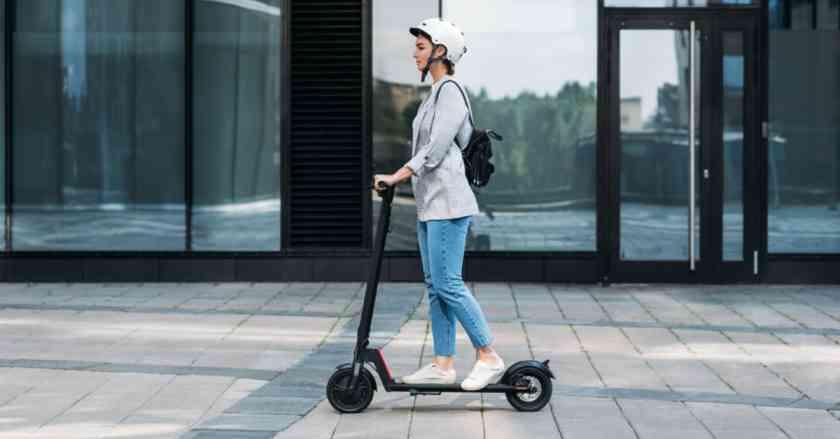
Where Can You Ride Electric Scooters in Virginia?
Electric scooters can be driven by riders on any public roadway with a speed restriction of 25 mph or less. Streets, roads, alleyways, avenues, boulevards, and bridges all fall under this category.
Unless otherwise forbidden by municipal regulation or signage, riders may also use electric scooters on sidewalks. Footpaths, walks, pathways, trails, and crossings are all included in this.
Unless otherwise indicated by municipal regulation or signage, riders are also permitted to use electric scooters on bicycle lanes and trails. This comprises bicycle-specific lanes, roads, tracks, courses, and corridors.
However, while using electric scooters on sidewalks, bicycle lanes, or other pathways, users must always give way to pedestrians and bicycles. Additionally, riders must take reasonable precautions to avoid running into anybody or anything on sidewalks, bicycle lanes, or path
Some examples of places where riders cannot ride electric scooters in Virginia include:
- Roadways with restricted access or interstates. These are roadways with barriers, ramps, gates, toll booths, and other regulated entry and exit locations. They are often identified by signage that read “Limited Access” or “Interstate”.
- Streets with posted speed restrictions greater than 25 mph. These are roadways with posted speed restrictions of more than 25 mph. Typically, signage with the posted speed limit in miles per hour identifies them.
- Areas where electric scooters are restricted or prohibited by municipal governments. These are places where local governments have passed laws that ban or place restrictions on the use of electric scooters inside their boundaries. Signs that read “Electric Scooter Regulations” or “No Electric Scooters” are typically used to identify them.
Maximum Speed Limit for Electric Scooters
On a flat, paved surface when propelled just by the electric motor, the state’s maximum speed restriction for electric scooters is 20 miles per hour. Both privately owned and hired electric scooters fall under this.
The speed restrictions for electric scooters inside some towns may be lower, though.
For instance, the maximum speed restriction for electric scooters in Arlington County, Fairfax County, and Virginia Beach is 15 miles per hour. The state-imposed 20 mph limit is also in effect in Richmond.
Parking Guidelines for Electric Scooters
According to the Virginia Code, riders can park their electric scooters on any public highway where parking is allowed. This includes streets, roads, alleys, avenues, boulevards, and bridges that have parking spaces or zones designated for parking.
Riders can also park their electric scooters on sidewalks unless prohibited by local ordinances or signage. This includes footpaths, walkways, paths, trails, and crossings that have space for parking.
Riders should also lock their electric scooters securely when parking them on public highways or sidewalks. This can prevent theft, vandalism, or tampering with their electric scooters. Riders can use chains, cables, locks, or other devices to secure their electric scooters to fixed objects such as poles, fences, racks, or trees.

Penalties for Violating Electric Scooter Laws
Violating electric scooter laws in Virginia can result in serious consequences for riders. Depending on the type and severity of the violation, riders may face:
Fines – Riders may have to pay fines ranging from $10 to $250 for violating electric scooter laws in Virginia. The amount of the fine may vary depending on the locality, the court, and the discretion of the judge or the officer.
Penalties – For breaking Virginia’s regulations governing electric scooters, users may be subject to fines, points on their license, license suspension or revocation, community service, probation, or even jail time. Depending on the location, the court, and the judge’s or officer’s judgment, the kind and length of the sentence may change.
Damages – Riders who violate the law while using an electric scooter in Virginia may be held liable for any injuries or property damage. Depending on the severity of the injury or property damage, the rider’s culpability, and the settlement or verdict of the case, the amount of the damages may change.
Lawsuits – In Virginia, violators of the law who use electric scooters may be subject to legal action from other parties who are harmed. The evidence, the witnesses, the attorneys, and the jury or judge involved may all influence how the case turns out.
Fines and penalties for electric scooter violations in Virginia
The following table shows some examples of fines and penalties for common electric scooter violations in Virginia:
| Violation | Fine | Penalty |
|---|---|---|
| Riding an electric scooter without a government-issued photo ID card | $10 | None |
| Riding an electric scooter on an interstate highway or a limited access highway | $100 | None |
| Riding an electric scooter on a street with a speed limit above 25 miles per hour | $100 | None |
| Riding an electric scooter without a white light on the front or a red reflector on the rear at night | $100 | None |
| Riding an electric scooter without wearing reflective clothing or accessories at night | $100 | None |
| Riding an electric scooter without yielding to pedestrians or bicyclists on sidewalks or bicycle lanes or paths | $100 | None |
| Riding an electric scooter without obeying traffic signals or signs | $100 | 3 points on driver’s license |
| Riding an electric scooter without using hand signals when turning or stopping | $100 | 3 points on driver’s license |
| Riding an electric scooter while carrying more than one passenger | $100 | 3 points on driver’s license |
| Riding an electric scooter while attaching it to another vehicle while in motion | $100 | 3 points on driver’s license |
| Riding an electric scooter while under the influence of alcohol or drugs | $250 | Suspension or revocation of driver’s license; possible jail time |
Conclusion
Electric scooters are a fun and convenient way of transportation in Virginia. However, they also come with some responsibilities and risks. Therefore, it is important to understand and follow the electric scooter laws in Virginia before riding on the streets.
This article has provided you with useful and comprehensive information about the Virginia electric scooter laws. We also hope that this article has helped you to ride electric scooters safely and responsibly in Virginia.



